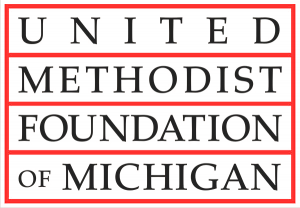Frequently Asked Questions
We maintain an affiliation with the Michigan Conference of The United Methodist Church; however, we are a 501(c)(3) public charity governed by a board of directors. The annual conference does not elect these directors; nor are staff members employees of the Michigan Conference. We serve a wide array of clients who share common bonds, convictions, or heritage with the Wesleyan movement.
No, we are a self-sustaining, non-profit organization. The majority of our revenue is derived from the management fees related to our various investment funds.
Yes, we are a religiously-affiliated public charity. Contributions to the Foundation may be tax-deductible. Consult with your accountant or the IRS to determine your specific eligibility.
Our primary services fall into the following categories: investment and loan services, planned giving ministry, financial stewardship consultation, clergy scholarships and grants, and leadership development.
Yes, the Foundation is a member of the National Association of United Methodist Foundations. The Foundation’s President and Executive Director, Rev. Dr. David S. Bell, is the immediate past president of this national association
The Foundation is governed by a volunteer board of directors. The individuals serving on the Board are all passionate about the ministry and mission of the Church. They set the governance policies of the Foundation and oversee its mission and vision.
No, we serve churches and ministry organizations which share common bonds, convictions, or heritage with the Wesleyan movement. In fact, the Foundation historically has served a broader market than exclusively United Methodists.
No. While the majority of our clients are local churches, we serve a significant number of other organizations. These other organizations include community-based ministries, camps, Christian communities, church agencies, and associations.
These organizations are similar in a few ways. Most notably, both administer planned gifts. However, we have a very distinct difference in managing assets. Almost without exception, placing assets with a Michigan community foundation is an irrevocable choice. The community foundation retains 100% of the principal and only shares a distribution to the church or ministry organization. In contrast, placing assets with the Foundation truly is an investment. The church or ministry organization retains total control of the assets and may withdraw funds at any time without penalty.
Most services are offered at no charge to the local church or ministry organization. Investment funds are assessed a management fee monthly. The Foundation is able to negotiate a highly competitive management fee due to the total funds under investment.
Absolutely. The Foundation and the Conference are separate entities. The investments of churches and ministry organizations are controlled by their respective leaders, not by the Conference Treasurer, District Superintendent, or any Conference committee. Refer to the most recent UMF Collective Funds of Michigan LLC Offering Circular for more information.
We are a non-profit organization. Staff are paid salaries. Directors are volunteers. Unlike many retail financial institutions, no one receives bonuses, commissions, stock options, or dividends. We operate on a low-cost budget and pass along as much savings as possible to our clients.
Yes, the Foundation has a proud history of administering these types of gifts for the benefit of various charities. Visit our planned giving section for more information.
No. However, we do administer a loan fund and provide capital campaign consultation. Both of these services help address building repair needs. In addition, we offer financial stewardship consultation which helps local churches deal with budget shortfalls.
We do not directly provide these services. However, we do provide planned giving consultation to individuals and offer clergy personal financial training and consultation.



